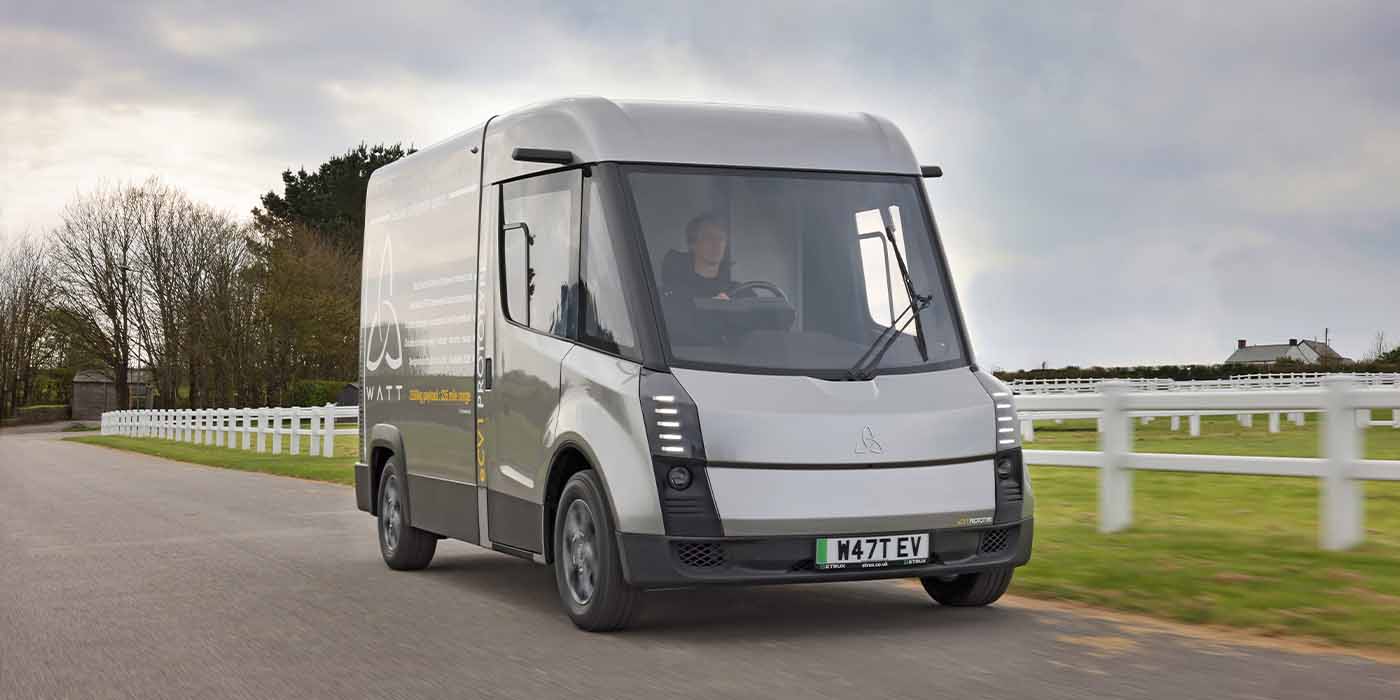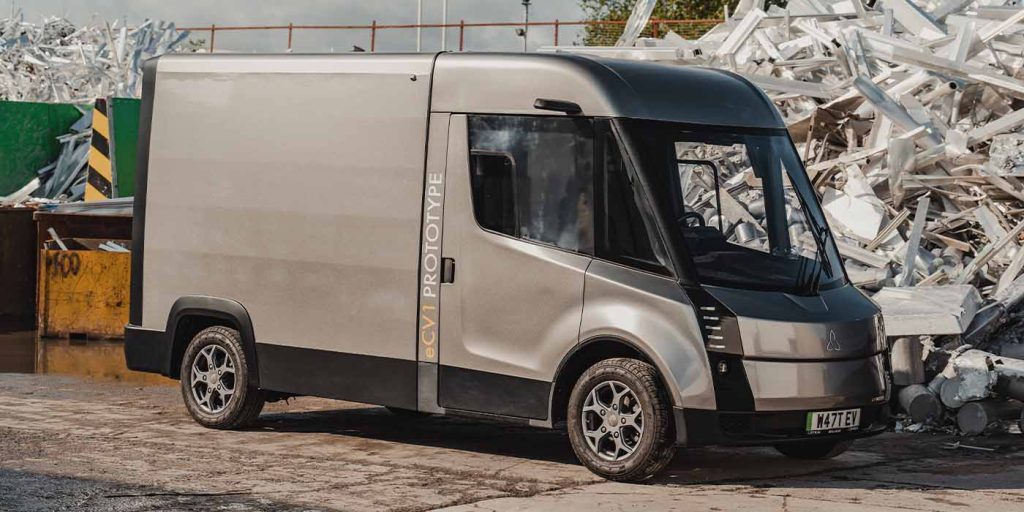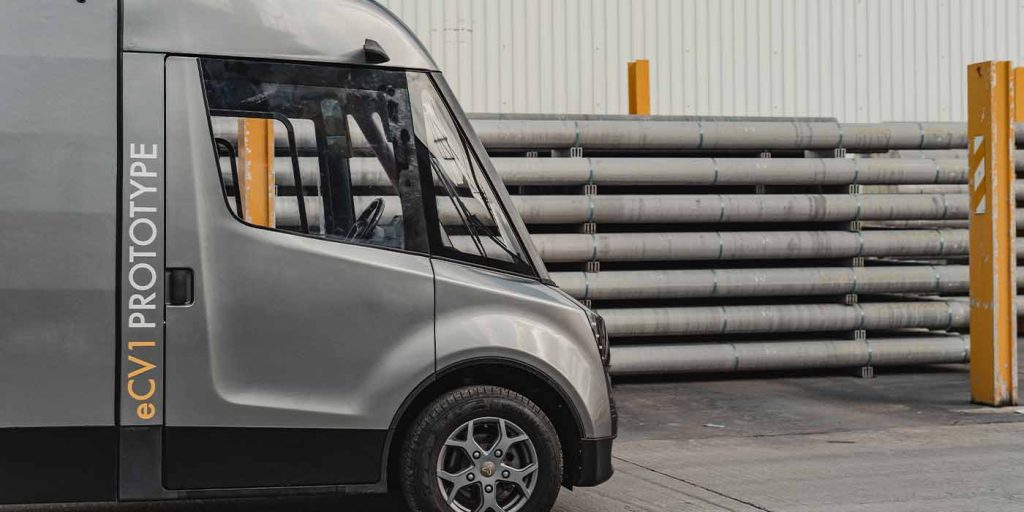
UK startup Watt Electric Vehicle Company (WEVC) has announced an interesting new partnership today as it looks to reach production of its flagship commercial van, the eCV1. Together with the help of leading Norwegian industrial company Hydro, WEVC hopes to deliver an electric van built from recycled aluminum that can last decades and potentially enable closed-loop production.
Watt Electric Vehicle Company, or WEVC for short, is a UK-based EV startup building upon net-zero goals from its inception, with hopes to develop and deliver ground-up EVs that are built using sustainable and recyclable materials and processes.
With its flagship eCV1 van, WEVC intends to deliver both cost and CO2 savings throughout the entire life cycle of its EVs, which it expects to last 20+ years compared to the average 5-7 years for other commercial vehicles.
When production officially begins, WEVC intends to offer a holistic commercial EV system to customers that includes vehicles, fleet optimization, maintenance, and charging infrastructure. Per the company website:
Vehicle life will be extended by regular refreshes and upgrades, and finally, at end of vehicle life, we will re-purpose body, chassis and powertrain materials at end of vehicle life including viable ‘second-life’ battery applications.
Through this sustainable design process, Watt Electric Vehicle Company hopes to once day achieve a closed-loop production program. Today, the company took a huge step toward that goal with the help of Hydro in order to build its upcoming eCV1 vans using recycled, low-carbon aluminum. Check it out.
Watt’s electric van represents low carbon sustainability
WEVC shared details of its new partnership with Hydro from the UK this morning, relaying that its upcoming eCV1 electric vans will be built exclusively using recycled, low-carbon aluminum within its structurally bonded structure.
Additionally, WEVC says it is exploring the use of certified recycled aluminum to manufacture additional bespoke extrusions on the eCV1 electric vehicles in order to further minimize its carbon footprint during scaled production.
Thanks in part to the use of renewables during the production process, Hydro is able to deliver lower-carbon aluminum that carries a footprint of 4.0 kg CO2 per ton, as opposed to a world average of 16.7 kg per ton. That material, combined with WEVC’s patented bonded aluminum Flex-Tech architecture can eventually enable a significantly cleaner EV production process.
When it begins building its production-intent eCV1 electric vans, Watt believes it can reduce its carbon impact by over 50% compared to other electric light commercial vehicles (LCVs). Per company CEO Neil Yates:
We started WEVC from a clean sheet of paper so are not restricted by legacy platforms or components, giving us freedom in both design and manufacture. Part of our design approach is the patented FlexTech technology used for our aluminum chassis, which gives incredible levels of flexibility and customization opportunities, but crucially is also very light.
In Hydro we have the perfect partner who can deliver very high-quality ‘greener’ aluminum products, which bring a significant reduction in embedded carbon. Forming a development partnership with Hydro allows us to together make sure the new alloys have all the right strength and durability attributes and the lowest possible manufacturing emissions while considering the entire supply chain.
Real world testing of Watt’s eCV1 electric vans is already underway in the UK, as WEVC prepares for commercial production in 2025. the prototype van currently comes equipped with a 110 kWh battery that delivers an estimated range of 310 km (193 miles).
Looking ahead, the startup looks to continue to minimize its carbon footprint while simultaneously developing EVs that are closed loop and built to last. Yates elaborated:
At WEVC, we also recognize that repair, re-use and recycle philosophies demand changes in both product design, manufacturing process and business practice and this partnership with Hydro will also explore wider opportunities such as more sustainable closed loop recycling during manufacture through to end of vehicle life recycling options. Together we can deliver upon multiple sustainability opportunities that come from fully embracing the circular economy.
You can watch Watt Electric Vehicle Company’s electric van prototype being tested in the video below:
FTC: We use income earning auto affiliate links. More.




Comments